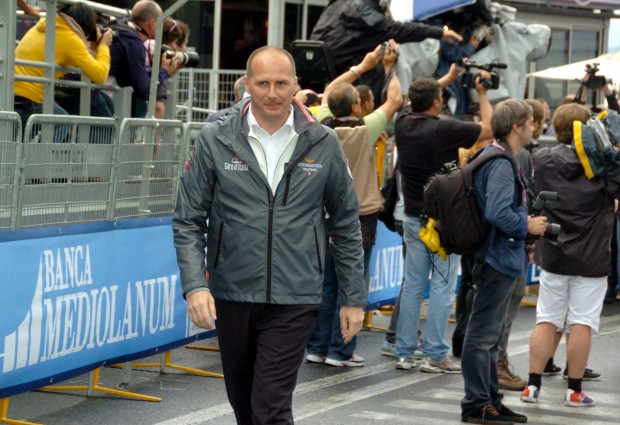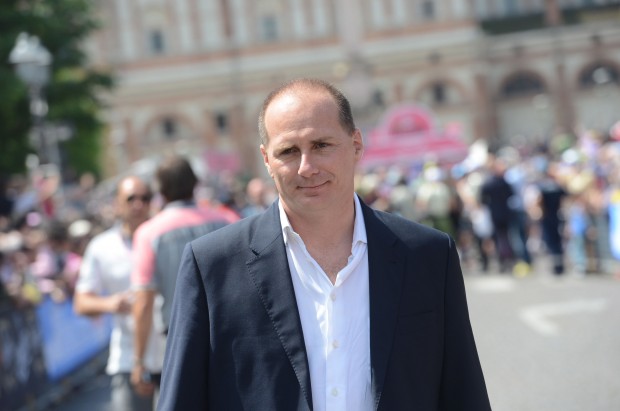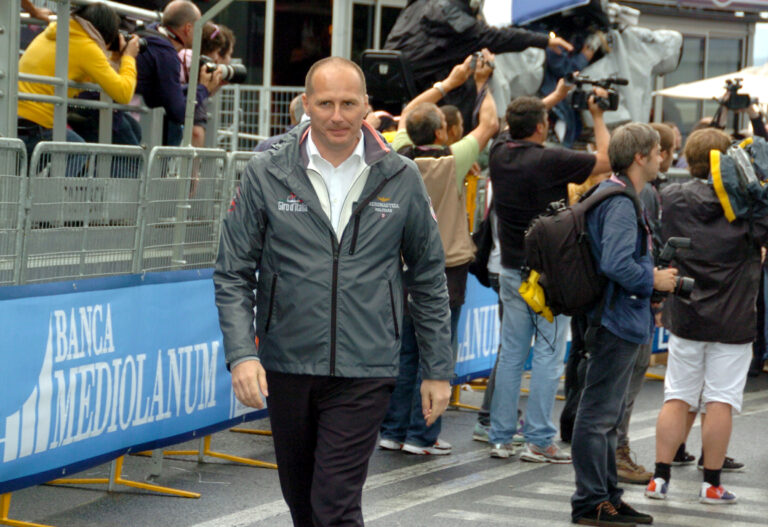Two week Grand Tours are among a raft of measures proposed by ex-Giro d’Italia race director, Michele Acquarone, to drive the sport to new commercial heights.
The former managing director of RCS Sport, who was sacked earlier this year in an investigation into misappropriation of funds – a charge he strenuously denies – believes reform of the racing calendar, and a central body to deal with the sale of commercial rights to cycling’s biggest properties, would make the sport more marketable.

Acquarone shared his proposals with RoadCyclingUK in an extended interview. You can read our in-depth article on the former Giro boss tomorrow.
Such proposals also include holding women’s events concurrently with men’s, and the formation of a franchise-based team system based on the American NFL model.
Acquarone said: “It’s the kind of heritage I want to leave to cycling.
“I spent the last two months just writing about everything that is working and everything that is not working in cycling.”
Acquarone is backing new UCI president Brian Cookson to bring effective change to the sport, which in recent years has pursued global expansion while watching major sponsors depart.
The Italian businessman is a firm believer of proposals put forward by The Outer Line’s “Roadmap to Repair Pro Cycling” – a document drafted by two American consultants with a passion for cycling.
He has also contributed to the Roadmap, with the proposed two-week Grand Tours the most radical of the sweeping changes he has suggested.
Such an idea, he hopes, will allow all of the world’s best riders to compete in every Grand Tour in the season – with the Vuelta a Espana making way for an early-season Australian Grand Tour race and an American edition in the autumn.

Other ideas include a radical reform of the WorldTour calendar, with around 90 days of racing scheduled between February and October.
Similar to proposals currently being pursued by the UCI, no races would overlap, courtesy of a tiered structure where the top division would see the best teams and riders competing exclusively in the top races, under the Italian’s blueprint.
A second division would exist beneath it, with the second-top riders, teams and races.
In order to allow such sweeping changes, Acquarone has also proposed a new centralised governance of the sport, ending the current system of race organisers only pursuing their own individual interests – as opposed to those of the sport as a whole.
And Acquarone is not just keen to see radical changes in men’s racing – the Italian businessman hopes to see women’s cycling develop too by using the boom in popularity of the men’s sport.
Organising races concurrently, with women competing earlier on the same day as the men, would draw in a new audience and allow for a single, continuous television broadcast in Acquarone’s opinion.
Check back tomorrow for our full interview with Michele Acquarone

